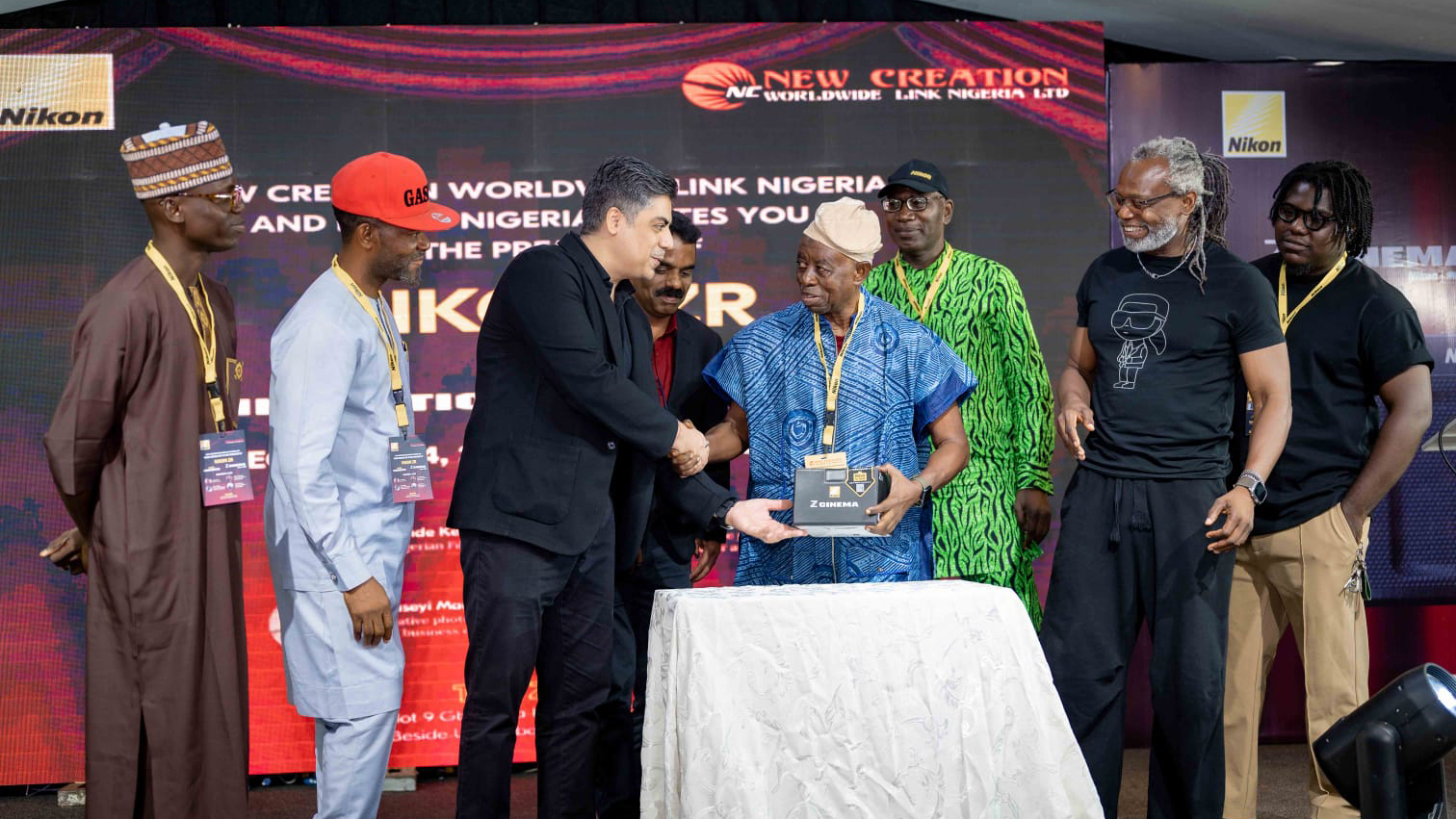
Broadening readership is a struggle now, especially when put against a myriad of print and online rivals.
Worse still, with a weak economy and poor reading culture, the last few years, no doubt, have seen massive publications of sermons, which are now released as motivational texts for church members.
The tragedy, however, is that many of these motivational books do not have inspiring stories to motivate.
Kumuyi: Defender of the Faith is one example of a good, inspirational book, not because of the subject, but the content. It details the highs and lows of William Folorunso (WF) Kumuyi’s journey from humble beginnings in Orunwa to the peak of religious evangelism.
The book seeks to provide a window of insight into the life and work of an enthusiastic advocate of holiness who has positively and immensely influenced the course of Christianity in Nigeria and beyond.
Kumuyi has consistently lived and preached holiness.
The book crams 80 years of history into a space that is handy and pleasing to the sight. However, the concentration is almost six decades of Kumuyi’s involvement in church development.
The storyline is simple. Born on June 6, 1941, at Erin-Ijesha, Osun State, his paternal hometown, Pastor Kumuyi was raised by his parents, Mr. Gabriel Kumuyi Akinfenwa and Mrs. Comfort Idowu Kumuyi Akinfenwa in Orunwa in the Ijebu Northeast Council of Ogun State. After completing primary school education at Orunwa and Owu-Ikija, Ogun State, he attended the famous Mayflower School, Ikenne. He then went on to the University of Ibadan and graduated as the overall best student with a First Class honours degree in Mathematics in 1967.
Very simple biography, so to say. But where the book begins to make impression on the reader is when he found Christ, where he found Christ and how he found him. He surrendered his life to Christ in 1964 and from that point, he has never looked back.
Since Deeper Christian Life Ministry transitioned from a prayer group, men and women of faith and courage have been instrumental in developing the theology and extending its witness.
Such men include Banji Oyewole, Segun Babatope, Emeka Izeze and Tunde Opeibi, who has done what many have been unable to: putting new perspective to the life of Kumuyi.
The authors are courageous to put a caveat: That it is not a ‘commissioned’ biography. Beyond that, it is not an academic treatise or a platform to praise-sing Pastor Kumuyi. Well, you might have reasons to doubt this because of their closeness to him.
Divided into 14 chapters, which are appropriately titled to reflect events in chronological, thematic and expository order, the biography, published by Elite Publishing Academy, United Kingdom provides the never-been-told tales of one of the greatest defenders of the Christian faith in modern times.
Using flashback technique and repetition, while electing for a language that is simple, lucid and accessible, the authors remove the fog that blurs the country’s religious landscape. They stimulate discussion about faith, providing fresh vista to navigate, in the process, avoiding divisive infractions Pentecostalism suffer.
Focusing on Pastor Kumuyi, the book faithfully documents and explains the peculiar practices and innovations that constitute the deeper life brand.
These include the codification and exposition of the 22 cardinal doctrines of the Bible, the modalities and standard for Christian marriages, from knowing God’s will through the courtship to wedding, the famous Monday Bible Study that has run for almost 50 unbroken years, the Christian Women Mirror, Campus Pearl and Children magazines, the Sunday Home Caring Fellowship for adults, youth and children, the Easter, December and Workers’ Retreats, Church Growth and Ministers’ Conferences, the Leadership Strategy Congresses, the Decentralisation of 1990, the creation of Language Churches, satellite transmission of church services, special programmes for youth, especially the massive Success Academy for Youths (SAY, 2001), annual Success Camp meetings and the Young Professionals Fellowship (YPF). Indeed, the book highlights the distinctiveness of the church and its members.
A total of 106 photographs document significant events and personalities in the life and ministry of Kumuyi from early adulthood to the present time.
With a foreword written by another accomplished man of God, the General Overseer of the Redeemed Christian Church of God (RCCG), Pastor Enoch Adejare Adeboye, the authors’ intention of getting readers’ rapt attention from the beginning seems to have been achieved.
Adeboye’s attestation to the Deeper Life Bible Church’s General Superintendent’s holiness assures readers that “the piece of literature in their hands is not a compendium of spurious and phoney claims, as it is the custom today; but a biography aimed at discussing and celebrating a man whose only vision on earth seems to be holiness and depopulating the kingdom of darkness.”
The 325-paged biography starts with the teachings, miraculous healings and other spiritual exploits that have become the signature tunes of the holiness-preaching cleric. But it is not done as a promotional piece to advertise the man. Not until the second chapter do readers have the opportunity to real details of growing for Pastor Kumuyi.
The young Kumuyi first started as a transformed person and then became a young man to living the life of faith. He is described as a lazy student and was said to later have a change of heart while in Mayflower.
That he eventually changed for the better, secured direct entry admission into the nation’s premier university, the University of Ibadan, the same year he became born again, 1964, to study Mathematics, and eventually graduating three years later, 1967, bears eloquent testimony of God’s role in his life.
Though other literature has discussed Deeper Life Bible Church’s formation, the new biography provides fresh insight and perspective.
For instance, the young Kumuyi had already made up his mind to advance his education career by going to the University of Lagos for a postgraduate certificate, and being a full-time priest was never in his mind.
But the persecution, rejection and outright derision of his holiness preaching, and those that stood with him, informed his decision for a career change.
The persecution was said to be so rife that those found to be toeing his spiritual path, then, especially the younger ones, were denied the rights of marriage by most of the existing churches.
It is, however, interesting to see how a modest Bible study group, started in 1973, in his official university residence, Flat 7, with 15 people, was to later blossom into a full-blown church in 1982: confirmation of the biblical admonition of not despising the days of little beginnings.
But as the narratives continue, one of those things the reader will find weird, intriguing and amusing, in the second chapter, is the unconventional way the mother, Mrs. Comfort Idowu Kumuyi, regarded as one of the strongest women of her days, went about childbirth.
“She believed only her husband had the right to see her complete body, and so, would dispense with the assistance of a midwife and engage in self-delivery. She would lock her room whenever it was time for her and would only open the door to allow others to take care of the baby after a successful arrival of the baby”.
One of the most revealing parts of the book is Chapter 10, which gives readers an idea of where the name ‘Kumuyi’, and the biography’s title are derived from. While ‘Kumuyi’ is said to be an abbreviated form of his father’s middle name ‘Ikumuyiwa’, the book’s title is derived from his first name, William, which the cleric himself had once explained ‘foreshadows God’s plan that he would be a ‘defender of the faith.
The book reveals one thing: His readiness to admit past mistakes, no matter the age and gravity of such errors, and make restitution, in sync with his expository teaching of God’s words.
To demonstrate that restitution goes beyond confessing wrongdoings to those affected, but the readiness to bear the consequence of such wrongdoing, the reader is regaled in Chapter 7, titled, Passion For All, with how Kumuyi, as a relatively young convert, had written to the West African Examinations Council (WAEC), confessing his sins, and asking for forgiveness. And instead of being prosecuted, as he had feared, he received a letter of appreciation from the organisation charging him to continue in the righteous path he had chosen.
The development of the plot and treatment of issues are also encouraging. The testimonials provided by individuals, consisting of his aides, members of the church and the general public, in Chapters 12 and 13, titled: Perspectives and Personal Stories (Parts One and Two), give readers the opportunity to know the inner workings of the cleric.
The concluding chapter of the book must be soothing to many that still want the 80-year-old cleric on the scene for some time to come.
Readers are assured that the holiness-preaching priest is not in a hurry to dump the altar yet.
“William Folorunso Kumuyi, though getting older, is still waxing stronger, fervent in spirit. He will not retire from preaching.”
The book, no doubt, is an interesting and significant religious material to read in every ramification. And most importantly, it bodes well to begin the year with such motivational piece. It is a must in every home, library, centre of worship and place of learning!






